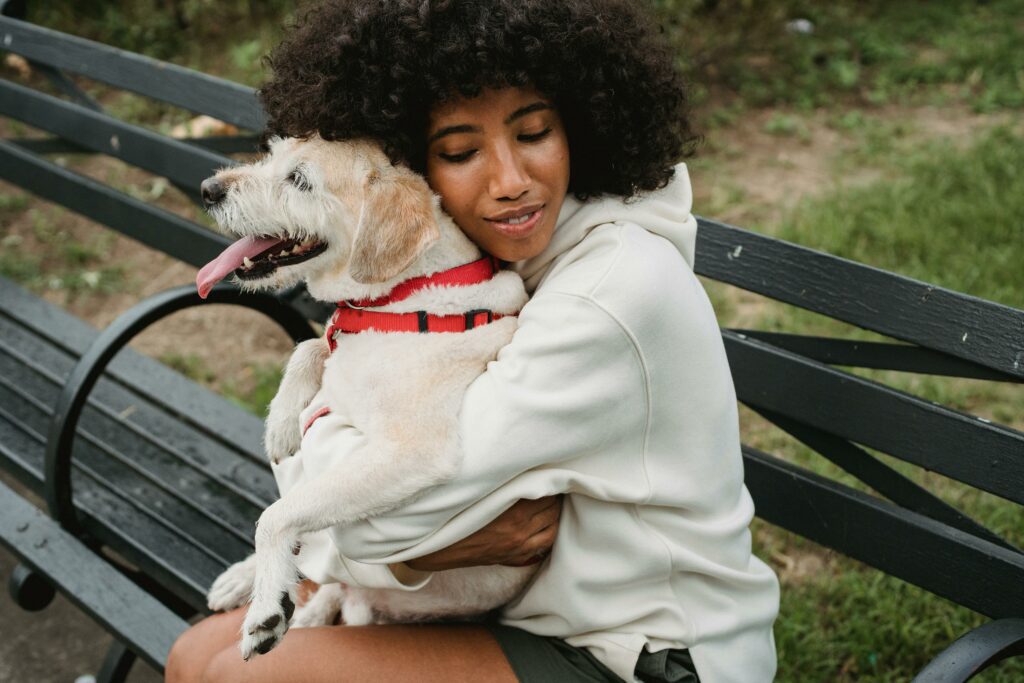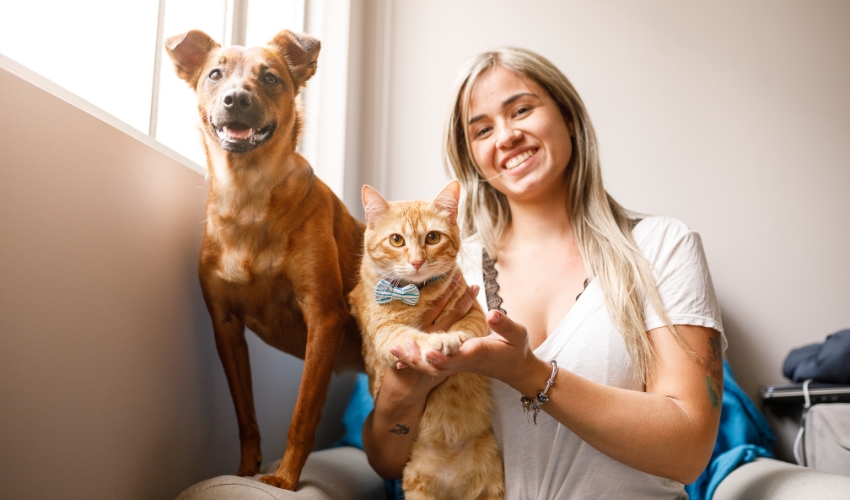One important part of being a good pet owner is taking your beloved animal to the doctor. However, for many pet owners, taking their furry family member to the vet is more than simply a routine visit—it’s a symbol of their unshakable commitment to their pet’s health and wellbeing. When a fur parent takes their pet to the veterinarian, they do so with compassion, devotion, and a strong feeling of duty.
A trip to the veterinarian can cause fear and anxiety in many pets. Even well-adjusted pets may experience stress and anxiety due to the unusual sights, sounds, and scents of the clinic as well as the fear of medical treatments. Nonetheless, it is crucial for your dog’s health and wellbeing to make sure they receive routine veterinary treatment. Fortunately, there are several of methods and approaches that can help reduce your dog’s anxiety during their veterinarian appointment, making it a more enjoyable and stress-free experience for you and your pet.
What are the common reasons for vet clinic visits?
Regular veterinary examinations are a top priority for dog owners for a number of key reasons:
- Preventive care: Veterinary examinations on a regular basis enable the early identification of possible health problems before they worsen. Veterinarians can assist maintain the health and happiness of pets by detecting and treating health issues early on.
- Health monitoring: Check-ups provide vets the chance to evaluate the general health and wellbeing of dogs. In order to enable early intervention, if necessary, they can conduct physical examinations, keep an eye on vital signs, and assess any changes in behavior or symptoms.
- Dental health: Keeping a dog’s mouth healthy requires routine cleanings and examinations. During routine check-ups, veterinarians can detect dental problems such plaque, tartar, gum disease, and tooth decay and suggest the necessary dental care procedures.
- Dietary advice: Depending on the age, breed, size, exercise level, and overall health of a dog, veterinarians can offer tailored dietary advice. To guarantee that dogs obtain enough nutrients and keep a healthy weight, they can offer advice on appropriate food and feeding techniques.
- Support for behavior and training: Veterinarians can provide advice on how to handle behavior, how to teach, and how to address behavioral problems including anxiety, aggression, or excessive barking. If necessary, they might also suggest options for additional behavioral instruction or counseling.
- Vaccinations: Scheduling routine veterinary visits helps to guarantee that dogs get the shots they need to fend off infectious and sometimes fatal illnesses. Vaccinations lower the risk of disease and help develop immunity against common diseases.
- Preventing parasites: During routine veterinary exams, checks are made for common parasites such intestinal worms, heartworms, fleas, and ticks. To shield dogs from infestations and the related health hazards, veterinarians can advise parasite management procedures and prescribe preventive drugs.
All things considered, regular veterinarian examinations are crucial to preserving a dog’s health, averting disease, and encouraging longevity. Fur parents show their dedication to giving their cherished canine friends the greatest possible quality of life by making routine veterinary treatment a priority.
How can you make vet visits fear free for your fur babies?
- Positive associations: Make the veterinary facility the first thing that comes to mind. Bring your pet to the clinic for brief visits so they can receive praise and goodies from the staff without undergoing any procedures. This makes your pet more likely to remember the clinic as a happy place.
- Exercise before the visit: To reduce anxious energy and encourage relaxation, give your pet some physical or mental stimulation in the hours leading up to the appointment.
- Frequent car rides: To help your pet become used to riding in a car, take them on regular car rides. Rides should be extended gradually to resemble a visit to the veterinarian.
- Using pheromones: Take into consideration utilizing pheromone sprays or diffusers made to lessen stress in animals. These products help your pet feel secure by releasing synthetic pheromones that are similar to the soothing scents of mother dogs and cats.
- Get used to handling: At home, gradually handle your pet’s mouth, ears, and paws to adapt them to being touched in a way that mimics a veterinarian checkup. Make this a joyful experience by giving out rewards and giving appreciation.
- Gradual exposure: Before the appointment, take your pet to the waiting area or reception desk to gradually introduce them to the sounds and sights of the veterinary facility. This can lessen their nervousness and help them become desensitized to the surroundings.
- Positive reinforcement: Before, during, and after the veterinarian visit, show your pet love and attention by giving them goodies and praise. This encourages calm behavior and helps form positive associations with the event.
- Comfort items: To offer your pet familiarity and comfort during the veterinarian visit, bring along their favorite toys, blankets, or bedding. Keeping recognizable objects close by might ease tension and anxiety.
- Calm demeanor: To reassure your pet throughout the vet visit, maintain your composure. Remaining calm can help ease the anxiety that dogs and cats experience because they are able to sense their owners’ emotions.
- Remain with your pet: If at all feasible, remain with your pet throughout the test to offer solace and assurance. Your presence can ease their anxiety and lessen the intensity of the situation.
By putting these advice and methods into practice, you can ensure that your pets receive the care they require while reducing stress and anxiety and help them look forward to vet visits.

















